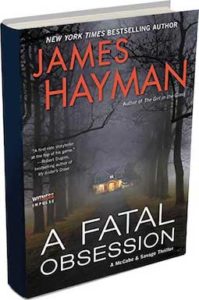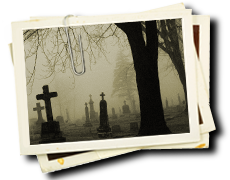The Problem With “Nice”
Monday, December 23rd, 2013At the risk of appearing Scrooge-like in this season of Merry, Happy and Ho-Ho-Ho, I’d like to add my two cents to a kerfuffle over book reviews that’s been brewing both in the print media and on the Internet for the past month or so.
If you haven’t been following it, the brouhaha started when a popular website called BuzzFeed hired Issac Fitzgerald who used to work as the Publicity Director for Dave Eggers’ McSweeney’s Publishing Company, to serve as the editor for its Books Section. Fitzgerald accepted the job because, as he says, “I was missing what I do best, which is talk about books online.”
However, Fitzgerald apparently only likes to talk about books positively, following what he calls The Bambi Rule: “If you can’t say something nice then don’t say nothing (sic) at all.” (Fitzgerald acknowledges that the line originally came from Thumper). While the Bambi Rule, whether mouthed first by a rabbit or a fawn, may a good one to follow when one is generating publicity for a book as Fitzgerald used to do but it’s not one legitimate critics or reviewers should be encouraged to follow.
The problem with “nice” is that few, if any, works of fiction are perfect and it is the job of competent reviewers to point what doesn’t work in a book as well as to lavish praise on what does. Reviews should do more than just try to convince people to read the books Fitzgerald or his reviewers fall in love with.
Whether we’re talking about crime fiction, literary fiction or non-fiction, legitimate reviewers should give us a sense of what the author intended and how well they achieved their goals. It should discuss in what ways the book didn’t work as well as the ways in which it did. Reviews should also provide insights into both the style and quality of the writing.
If the reviewer does their job well, he or she can help people intelligently decide what they want to buy and read. Just offering an unending stream of nice, as Fitzgerald suggests, isn’t criticism or analysis. At its best, it’s marketing and should be identified as such. Most of the reader reviews on Amazon and B&N generally fall into this category. At its worst it’s meaningless pap.
Predictably reaction in both online and traditional media was vociferous. Both Maureen Dowd and Bob Garfield wrote stinging op-eds on Fitzgerald’s Bambi Rule in the New York Times. Garfield sarcastically ended his piece by noting:
“BuzzFeed’s heroic initiative will succeed even if it merely eradicates the depressing negativity that has for so long kept literary criticism from becoming a full-fledged economic sector, like agriculture, transport and erectile dysfunction.
It also brings us one step closer to my two lifelong dreams: first, a newspaper that delivers only good news; and second, diet bacon.”
While I agree with Dowd, Garfield and others who think Fitzgerald is doing readers a disservice, I have to say I also agree that some book reviews and reviewers are unnecessarily––if amusingly––nasty. I’ve always loved Dorothy Parker’s oft-quoted line,“This is not a book to be tossed aside lightly. It should be thrown with great force.”
On a decidedly nastier note, Garfield’s column points out that “The Hatchet Job of the Year Award” went to a reviewer named Camilla Long of the London Times who described a writer named Rachel Cusk’s memoir of her marital breakup as “a needy, neurotic mandolin solo” written by “a brittle little dominatrix and peerless narcissist.”
That kind of barbed and personal mud-slinging is both nasty and unnecessary. Legitimate constructive criticism shouldn’t be. Like any writer, I love getting good reviews and hate getting bad ones. While I’ve never been the target of anything remotely as ugly as Ms. Long’s poison pen, I would still prefer getting a thoughtful negative review that points out legitimate flaws in my work to one that mindlessly praises it. Constructive criticism can help me improve my writing and my books. Empty praise serves no purpose other than to puff up my ego (which admittedly makes me feel good) and to flim-flam potential readers which doesn’t.
A good friend of mine, now in his eighties and a compulsive reader, once asked me how many years I thought I had left in my life. I offered an optimistic number. He then asked me to multiply that number by the number of books I usually read in a year.
Even if I made it to the ripe old age I predicted, I was shocked by how few books I’d have time to read before they carried me out. Given the small number, I’ll continue to depend on good reviewers and thoughtful criticism to help me decide which ones to choose.
I suppose the ultimate problem with “nice” is that it smacks of the philosophy that impels adults to give every kid who participates in a race, even the one who finishes last, equal praise and maybe even a trophy. In literary criticism that simply won’t cut it.

